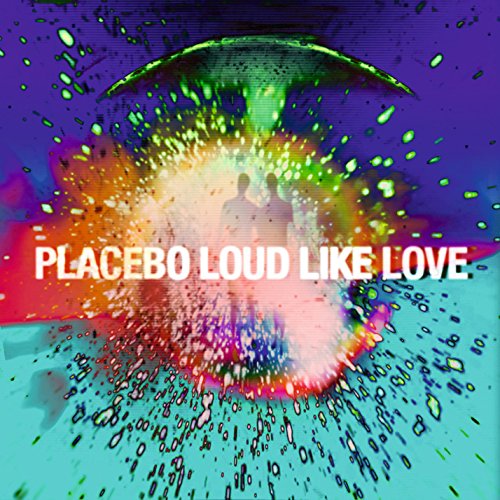
Placebo
Loud Like Love
Release Date: Sep 17, 2013
Genre(s): Pop/Rock, Alternative/Indie Rock, Indie Rock
Record label: Universal
Music Critic Score
How the Music Critic Score works
Buy Loud Like Love from Amazon
Album Review: Loud Like Love by Placebo
Fairly Good, Based on 7 Critics
Based on rating 82%%
Nowadays a husband and father, Brian Molko clearly struggles to access those most debased recesses of his once malignantly dissolute psyche. Alas, the Marquess of Moral Turpitude must get by these days on the songwriting. But for all the heaving depravity operas and scorching, metallic smack-addiction fables in the Placebo canon, the band also wrote some of the prettiest and most gut-wrenchingly sorrowful songs of their generation (“Centrefolds,” “Special Needs”).
Based on rating 8/10
While Brian Molko’s voice has always been divisive, Placebo’s darkly glittering alt-rock has often been unfairly maligned. Unusual vocalists pedalling intelligent, introverted rock tend to be met with more acclaim; Michael Stipe and Billy Corgan amongst the most obvious examples. But with their borderline goth image and endless supply of angst, after late Nineties success Placebo found themselves unfairly lumped in with the early Noughties emo scene.
Based on rating 7/10
As it turns out, it's rather telling that not far into their career, Placebo made a memorable appearance in Todd Haynes' 1998 David Bowie roman a clef/glam rock homage Velvet Goldmine as a sinewy band clearly invented as a stand-in for T. Rex. In the years since, the members have shown little interest in branching out into broader areas of pop, and have instead focused largely on the passionate goth niche they originally carved for themselves, relishing Marc Bolan-esque cult status rather than pursuing radio-friendly superstardom.
Based on rating 3
In the nearly 20 years since they broke through, Placebo have had their fair share of dramatic ups and downs. With that in mind, Loud Like Love, their seventh studio album, could be considered a quintessential Placebo album. It’s the follow-up to Battle For The Sun, which was the sound of a band that had just awoken from a comatose state. That LP seemed to suggest that, with the addition of a new drummer in Steve Forrest joining Brian Molko and Stefan Olsdal, things were on the up and that they seemed to find a way to progress with their career at middle age.
Based on rating 2/5
Nearly two decades on from their debut, Placebo are still peddling the same dark arts that won them fans and foes in equal measure. The fans flapped mothlike to Brian Molko’s tales of debauchery, gender-bending and way with a kinky couplet. The foes rolled their eyes at their rather watery grunge and noted that Molko’s black heart paled to more of a magnolia in comparison to his stadium-level peers (hello, Matt Bellamy).
Based on rating 3/10
It’s been a long time since Placebo released an album that felt anywhere near as intense as their early work. 17 years ago, they rocked up out of London an aesthetically alarming bunch that could have easily been mistaken for a warning against malnourishment and addiction to narcotics as opposed to an alternative rock band. In keeping with such an ‘outsiders for outsiders’ image, Placebo’s early work was doused in controversial themes, equipped with a injecting, candid delivery and hallucinogenic soundscapes that channeled a swath of troubles too long to list.
Opinion: Fairly Good
Every time I hear that androgynous, distinctive mewling of Brian Molko – like bitterly cold milk through a straw, or a kitten in a mine shaft – I am thrown back to my first encounter with Placebo: the seminal 2002 skateboard video-cum-magnum opus that is Flip’s Sorry. The opening section, belonging to Mark Appleyard, was scored to ‘Every You Every Me,’ off the band’s second album, 1998?s Without You I’m Nothing, and I can no longer hear them, any cut, without envisioning the powerful application of backside tailslides or Apples hopping a Vespa off a speed bump, visions of a shirtless stunt wood demigod manipulating his fickle little beast down handrails and hubba ledges in Kawasaki swollen tongued Circas. Perhaps this can be attributed to the fact that for my group of friends and I, skateboarding, at the time, possessed a position on the needs hierarchy roughly equivalent to nourishment and shelter, whilst nipping at the heels of breathing (and adroitly trumping sex, thanks in no small part to the former’s relative abundance and ease of acquisition compared to the later).
'Loud Like Love'
is available now

